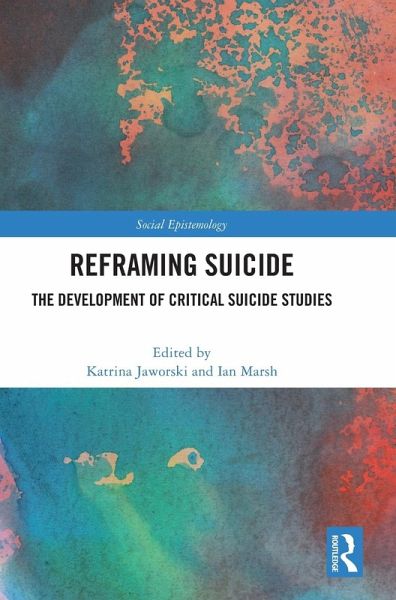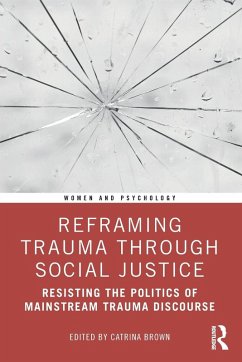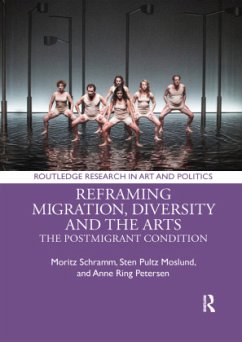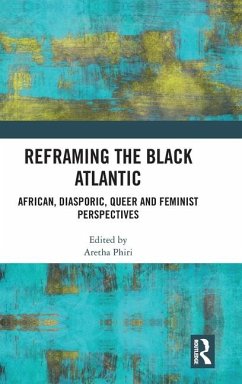
Reframing Suicide
The Development of Critical Suicide Studies
Herausgegeben: Jaworski, Katrina; Marsh, Ian
Versandkostenfrei!
Versandfertig in 6-10 Tagen
160,99 €
inkl. MwSt.

PAYBACK Punkte
80 °P sammeln!
This book focuses on understanding and researching suicide and suicide prevention from historical, political, cultural, social, and philosophical perspectives, all of which are located in particular contexts of research and practice.Critical suicide studies, as an intellectual movement, has been in the making for over 40 years. Yet it has emerged only in recent times thanks to the global efforts of scholars, practitioners and activists working across a range of disciplines and fields of practice. Critical suicide studies seeks to reframe how suicide has been researched by disrupting traditiona...
This book focuses on understanding and researching suicide and suicide prevention from historical, political, cultural, social, and philosophical perspectives, all of which are located in particular contexts of research and practice.
Critical suicide studies, as an intellectual movement, has been in the making for over 40 years. Yet it has emerged only in recent times thanks to the global efforts of scholars, practitioners and activists working across a range of disciplines and fields of practice. Critical suicide studies seeks to reframe how suicide has been researched by disrupting traditional ways of understanding suicide and suicide prevention. In so doing, this movement is critical of the universalising assumptions and applications of ideas about suicide, which too often are centre on Western notions of psychopathology, and individualised accounts of agency and suicidal subjectivity. The collected works in this book offer interventions into the way suicide and suicide prevention have been understood in different contexts, be it in relation to the history of knowledge production and its approaches, practices of suicide prevention, and more recent examples of how suicide is represented, both publicly and personally.
This book will be of immense value to scholars, students and researchers interested in the topic of suicide in relation to epistemic injustice, history, critiques of scientific frameworks, moral discourses, ethics, and creative arts such as poetry. It was originally published as a special issue of Social Epistemology.
Critical suicide studies, as an intellectual movement, has been in the making for over 40 years. Yet it has emerged only in recent times thanks to the global efforts of scholars, practitioners and activists working across a range of disciplines and fields of practice. Critical suicide studies seeks to reframe how suicide has been researched by disrupting traditional ways of understanding suicide and suicide prevention. In so doing, this movement is critical of the universalising assumptions and applications of ideas about suicide, which too often are centre on Western notions of psychopathology, and individualised accounts of agency and suicidal subjectivity. The collected works in this book offer interventions into the way suicide and suicide prevention have been understood in different contexts, be it in relation to the history of knowledge production and its approaches, practices of suicide prevention, and more recent examples of how suicide is represented, both publicly and personally.
This book will be of immense value to scholars, students and researchers interested in the topic of suicide in relation to epistemic injustice, history, critiques of scientific frameworks, moral discourses, ethics, and creative arts such as poetry. It was originally published as a special issue of Social Epistemology.














